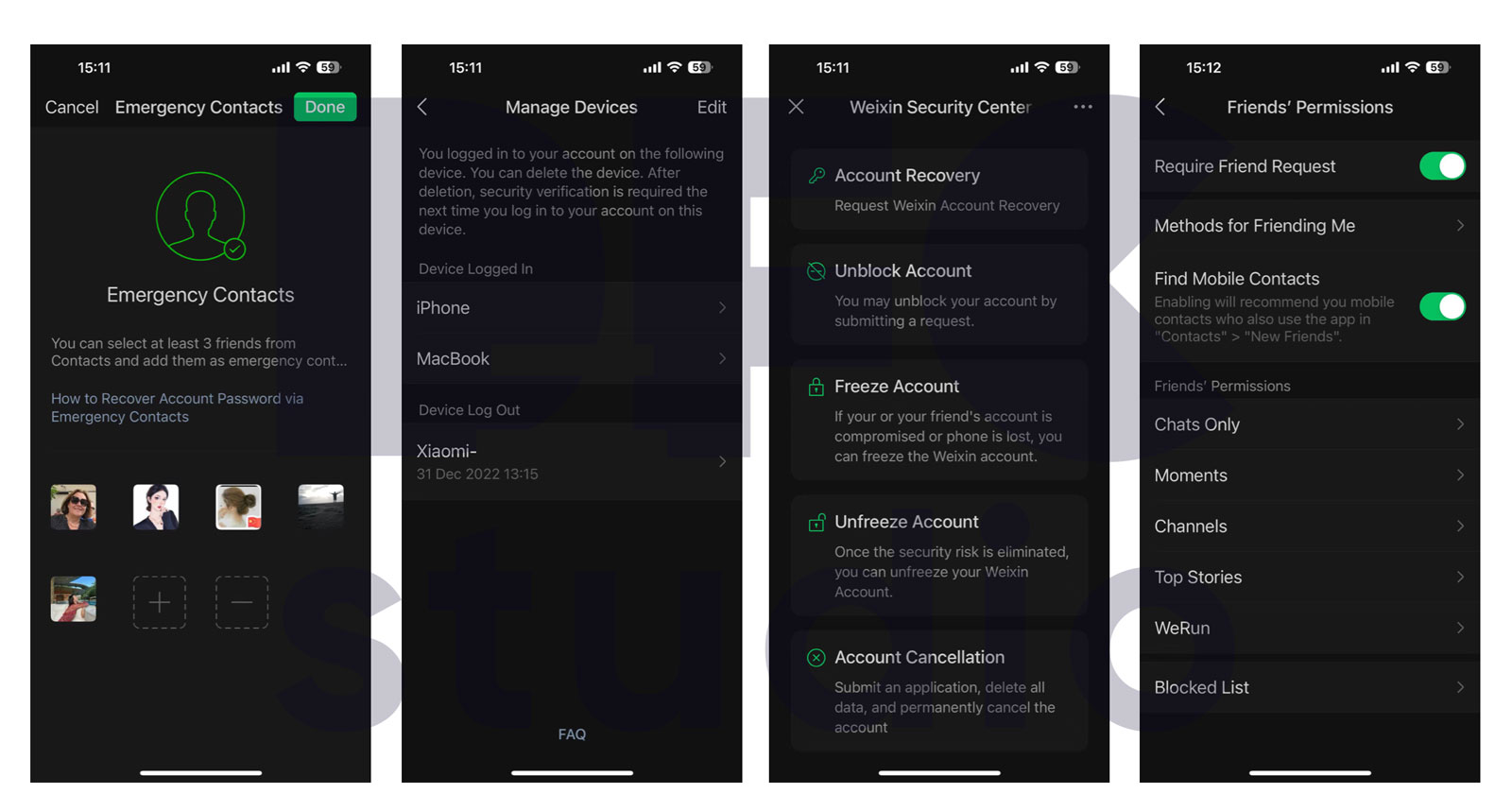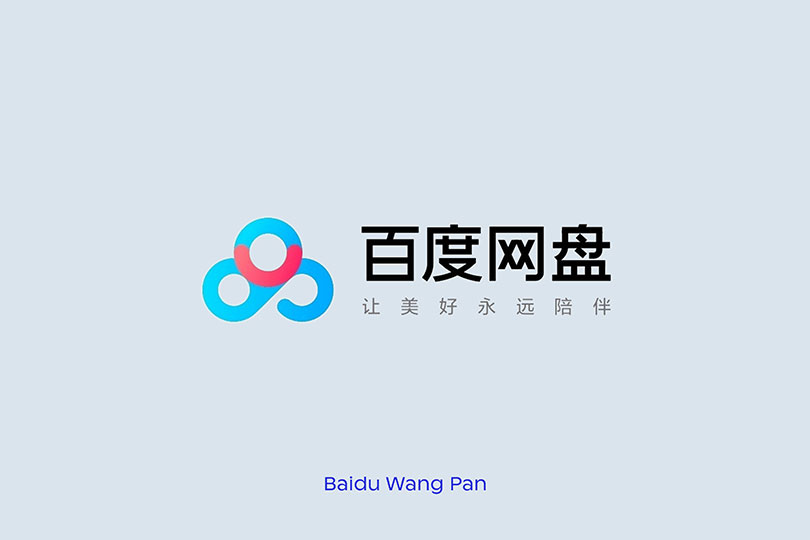Is WeChat Safe? Unveiling the Truth Behind Security Concerns
Delve into the safety of WeChat with our comprehensive guide. Discover the facts behind common security concerns and equip yourself with essential knowledge for a secure WeChat experience.

Introduction to WeChat Security
WeChat, developed by Chinese tech giant Tencent, has established itself as one of the world’s most popular messaging and social media platforms. With over a billion monthly active users, WeChat has become an integral part of daily life for millions of Chinese citizens. However, alongside its widespread popularity, questions and concerns about the security and privacy of WeChat have also arisen.
In this article, we’ll delve into the topic of WeChat security to provide users with a comprehensive understanding of the safety measures in place and the potential risks associated with using the platform. From privacy concerns to data security measures, we’ll explore the various aspects of WeChat security to help users make informed decisions about their usage of the app.
As WeChat continues to evolve and expand its range of services and features, addressing security issues becomes increasingly important. By staying informed about the security measures in place and taking proactive steps to protect their privacy and data, users can enjoy the benefits of WeChat while minimizing potential risks.
Join us as we explore the world of WeChat security and uncover the truth behind the question: Is WeChat safe?
Privacy Concerns
WeChat, like many other digital platforms, is not immune to privacy concerns. Users often raise questions about how their personal information is collected, stored, and used within the popular messaging app.
Some common privacy concerns associated with WeChat include:
Data Collection: WeChat collects various types of user data, including personal information provided during account registration, contact lists, location data, and chat logs. Users may be concerned about the extent of data collected by WeChat and how it is used for targeted advertising or other purposes.
Third-party Access: There are concerns about WeChat sharing user data with third-party companies or government agencies. While WeChat has denied allegations of sharing user data with the Chinese government, questions about potential data access by third parties persist.
Content Monitoring: WeChat has been criticized for monitoring and censoring user content, particularly political and sensitive topics. Users may worry about their conversations being monitored or censored by WeChat, especially in regions with strict government regulations on online speech.
Data Security: Users are concerned about the security of their data on WeChat, particularly in light of data breaches and cybersecurity threats. Questions about WeChat’s encryption protocols, data storage practices, and vulnerability to hacking are common among users.
Addressing these privacy concerns is essential for WeChat to maintain user trust and confidence. In the next sections, we’ll explore the measures WeChat has in place to protect user privacy and data security, as well as provide tips for users to enhance their privacy settings and protect their personal information while using the app.
Data Security Measures
Despite privacy concerns, WeChat has implemented several data security measures to protect user information and ensure a safe user experience. Some of the key data security measures include:
Encryption: WeChat employs end-to-end encryption for messaging conversations, ensuring that messages are securely transmitted between users and cannot be intercepted by third parties. This encryption protocol helps safeguard the privacy and confidentiality of user communications on the platform.
Secure Authentication: WeChat offers secure authentication mechanisms, such as two-factor authentication (2FA), to verify user identities and prevent unauthorized access to accounts. By requiring users to verify their identity through multiple factors, WeChat enhances account security and reduces the risk of account hijacking.
Data Minimization: WeChat adheres to the principle of data minimization, collecting only the necessary user data required for providing its services. By minimizing the collection and storage of user data, WeChat reduces the potential risk of data breaches and unauthorized access to sensitive information.
Regular Security Audits: WeChat conducts regular security audits and assessments to identify and address potential vulnerabilities in its systems and infrastructure. These security audits help ensure that WeChat’s security measures remain robust and effective in protecting user data from threats and attacks.
Compliance with Regulations: WeChat complies with relevant data protection regulations and privacy laws in the jurisdictions where it operates. By adhering to legal requirements and industry standards, WeChat demonstrates its commitment to protecting user privacy and maintaining trust with its users.
While WeChat has implemented these data security measures to safeguard user information, users need to take proactive steps to protect their privacy and security while using the app. In the next section, we’ll discuss the safety features available to WeChat users and provide tips for enhancing privacy settings and security measures.
User Safety Features
WeChat offers a range of safety features and settings that users can utilize to enhance their privacy and security while using the app. These features include:
Two-Factor Authentication (2FA): WeChat provides users with the option to enable two-factor authentication, adding an extra layer of security to their accounts. With 2FA enabled, users must provide a second form of verification, such as a code sent to their mobile device, in addition to their password when logging in.
Privacy Settings: WeChat allows users to customize their privacy settings to control who can see their profile, contact them, and view their Moments (posts). Users can adjust privacy settings for individual contacts or groups, ensuring that their personal information is only visible to those they trust.
Password Protection: WeChat offers password protection for individual chats and moments, allowing users to set a password or fingerprint lock to access sensitive conversations or posts. This additional layer of protection helps prevent unauthorized access to private information.
Block and Report: WeChat enables users to block unwanted contacts and report abusive or harassing behavior. By blocking unwanted contacts, users can prevent them from contacting or viewing their profile. Reporting abusive behavior helps WeChat identify and address violations of its community guidelines.
Safety Center: WeChat provides a Safety Center where users can access resources and information on how to stay safe while using the app. The Safety Center offers tips on protecting personal information, avoiding scams, and reporting suspicious activity.
Real-Name Verification: WeChat encourages users to verify their identity with real-name verification, which adds an additional layer of security to their accounts. Real-name verification helps prevent account impersonation and enhances trust and authenticity within the WeChat community.
By utilizing these safety features and settings, users can enhance their privacy and security while enjoying the benefits of WeChat’s messaging and social media platform. In the next section, we’ll explore common cybersecurity threats that WeChat users may encounter and provide tips for staying safe online.
Cybersecurity Threats
While WeChat implements various security measures to protect user data, users should remain vigilant about potential cybersecurity threats. Some common threats that WeChat users may encounter include:
Phishing Scams: Phishing scams involve fraudulent attempts to obtain sensitive information, such as login credentials or personal data, by posing as a legitimate entity. WeChat users may receive phishing messages or emails that appear to be from WeChat but are actually from malicious actors seeking to steal their information.
Malware and Viruses: Malicious software (malware) and viruses can infect WeChat users’ devices through malicious links, attachments, or downloads. Once installed, malware can compromise device security and steal sensitive information stored on the device or within the WeChat app.
Account Hijacking: Account hijacking occurs when unauthorized individuals gain access to a user’s WeChat account without their permission. This can happen through various means, such as password theft, social engineering attacks, or malware infections. Once hijacked, attackers may misuse the account for malicious purposes or access sensitive information stored within the account.
Fake Accounts and Impersonation: Fake accounts and impersonation pose risks to WeChat users, as malicious actors may create fake profiles to deceive users into disclosing personal information or engaging in fraudulent activities. Users should be cautious when interacting with unknown contacts or suspicious accounts on WeChat.
Third-Party Apps and Services: Third-party apps and services that integrate with WeChat may pose security risks if they are not properly vetted or secured. Users should exercise caution when granting permissions to third-party apps and only use reputable services that prioritize user privacy and security.
To mitigate these cybersecurity threats, WeChat users should follow best practices for online safety, such as:
- Avoid clicking on suspicious links or downloading attachments from unknown sources.
- Enable two-factor authentication (2FA) to protect their WeChat accounts.
- Keep their WeChat app and device software up to date with the latest security patches.
- Use strong, unique passwords for their WeChat accounts and avoid sharing them with others.
- Be cautious when sharing personal information or engaging in financial transactions on WeChat.
By staying informed about cybersecurity threats and taking proactive steps to protect their accounts and personal information, WeChat users can minimize the risks associated with using the platform.
Regulatory and Legal Considerations
In addition to cybersecurity threats, WeChat users should also be aware of regulatory and legal considerations that may impact their use of the platform. Some key factors to consider include:
Government Surveillance: WeChat is subject to government surveillance and censorship in certain regions, particularly in China where the platform is heavily regulated by the government. Users should be aware that their activities on WeChat may be monitored by government authorities, and certain types of content may be subject to censorship.
Data Localization Laws: Some countries have implemented data localization laws that require companies to store user data within the country’s borders. WeChat may be required to comply with these laws in certain jurisdictions, which could impact the privacy and security of user data.
Compliance with Regulations: WeChat must comply with relevant regulations and legal requirements in the jurisdictions where it operates. This includes data protection laws, privacy regulations, and telecommunications regulations that govern how WeChat collects, stores, and processes user data.
User Rights and Freedoms: WeChat users should be aware of their rights and freedoms when using the platform, including the right to privacy, freedom of expression, and freedom of association. Users should familiarize themselves with WeChat’s terms of service and community guidelines to understand their rights and obligations as users of the platform.
Legal Disputes and Enforcement: In the event of legal disputes or enforcement actions involving WeChat, users may be subject to legal proceedings or regulatory investigations. Users should be prepared to cooperate with authorities and legal processes if necessary and seek legal advice if they encounter legal issues related to their use of WeChat.
It’s important for WeChat users to stay informed about regulatory developments and legal considerations that may impact their use of the platform. By understanding the regulatory and legal landscape surrounding WeChat, users can better protect their rights and privacy while using the app.
Expert Opinions and Perspectives
To provide a well-rounded understanding of the safety of WeChat, it’s valuable to consider expert opinions and perspectives from cybersecurity professionals, privacy advocates, and industry analysts. Here are some insights from experts in the field:
Cybersecurity Experts: Many cybersecurity experts acknowledge that while no digital platform is completely immune to security risks, WeChat has implemented several security measures to protect user data. They emphasize the importance of users practicing good security hygiene, such as using strong passwords, enabling two-factor authentication, and staying vigilant against phishing scams.
Privacy Advocates: Privacy advocates often raise concerns about the data collection and privacy practices of large tech companies like Tencent, the parent company of WeChat. They advocate for greater transparency and user control over their personal information, including clear privacy policies, opt-in consent mechanisms, and data deletion options.
Industry Analysts: Industry analysts analyze the competitive landscape and market trends in the messaging and social media space, including the security and privacy features offered by different platforms. They provide insights into how WeChat compares to other messaging apps in terms of security measures, user privacy protections, and regulatory compliance.
User Feedback: User feedback and experiences can also provide valuable insights into the safety of WeChat. Users may share their experiences with privacy settings, security incidents, and concerns about data protection on online forums, social media platforms, and review sites.
By considering expert opinions and perspectives, users can gain a more nuanced understanding of the safety and security of WeChat and make informed decisions about their usage of the platform. It’s essential for users to stay informed about security best practices and emerging threats to protect their privacy and security while using WeChat.
Conclusion
In conclusion, the safety of WeChat is a multifaceted topic that requires careful consideration of various factors, including privacy concerns, data security measures, regulatory compliance, and expert opinions. While WeChat has implemented security measures to protect user data and privacy, users should remain vigilant about potential cybersecurity threats and regulatory considerations.
By understanding the risks and taking proactive steps to protect their privacy and security while using WeChat, users can minimize the potential impact of security incidents and safeguard their personal information. It’s essential for users to stay informed about security best practices, utilize available safety features, and exercise caution when interacting with others on the platform.
Ultimately, the safety of WeChat is a shared responsibility between the platform provider, users, and regulatory authorities. By working together to address security challenges and promote transparency, accountability, and user empowerment, we can create a safer and more secure online environment for all WeChat users.
As technology continues to evolve and new security threats emerge, it’s crucial for users to stay informed, stay vigilant, and stay safe while using WeChat and other digital platforms. By prioritizing privacy, security, and trust, we can ensure that WeChat remains a valuable and trusted communication tool for users around the world.
Want to Succeed in China? Download Our Free 84-Page Strategic Guide

Want to Succeed in China? Download Our Free 84-Page Strategic Guide
Keep up with the latest trends
DFC Studio is a Beijing-based digital marketing and e-commerce agency specialized in the Chinese market.
From strategizing your market entry to fostering brand recognition, our mission is to facilitate your expansion in order to boost your sales.
What sets us apart is our team of highly accomplished professionals, all of whom are graduates from renowned international universities.
This unique blend of bicultural expertise and deep understanding of the Chinese market positions us as a great partner to unlock your brand’s full potential in this thriving landscape.






